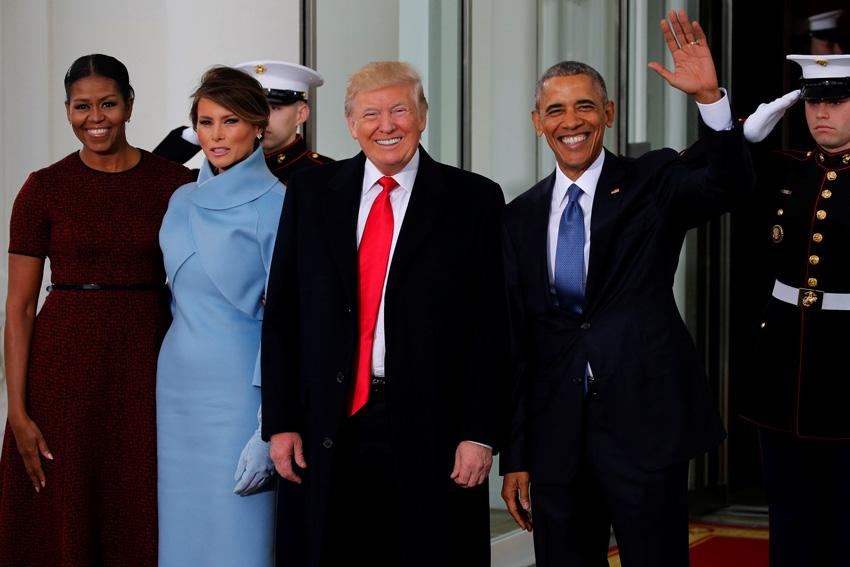New POTUS takes over the reigns

Throughout history one of the most prominent themes is change; one of the easiest ways that change is seen is in new leaders. The time of greatest impact often is made by leaders at the start of their rule, or the first one hundred days.
The term “first one hundred days” goes back to the early 1800s when Napoleon, after being exiled, returned to France and regained control of the country. During these first one hundred days Napoleon took action causing several battles that ended in the infamous battle of Waterloo where he was defeated.
One of the first recorded uses of this term in America was with Franklin Delano Roosevelt, who took over the presidency in the middle of the Great Depression. FDR made major changes to the government, that still exist to this day.
He instituted programs to reopen banks that had closed. He also implemented the Agricultural Adjustment Act which helped to reduce the market saturation that plagued farmers.
In one hundred days, FDR had effectively introduced social welfare of America and started it back on the road to recovery. These drastic changes made FDR’s one hundred days one of the most famous in U.S. history.
Two former AP U.S. History students gave their thoughts on this subject.
Cate Vander Kooi ’18 talked about FDR’s impact.
“In FDR’s first 100 days he made many decisions to help the American people through the Great Depression. He opened several agencies and organizations specifically for aid and economic help,” Vander Kooi said. “The first 100 days of a presidency establishes what kind of presidency our nation will have. It is usually used for reforms and initial actions to take place.”
Juliana Lozano ’18 talked about the first one hundred days of a president.
Although FDR may have one of the most famous one hundred days, there are many other presidents who made massive changes to the country in a short time. Many presidents still attempt to live up to or beat FDR’s record-setting one hundred days.
For example, President Ronald Reagan , on his first one hundred, had American diplomats released from their Iranian captors on his first day in office. Later, he proposed a 41.4 billion dollar budget cut and was almost assassinated.

A more recent example is the first one hundred days of President Barack Obama. He made drastic changes to our country and its policies. He lifted a ban on stem cell research, started plans for withdrawing troops from Iraq, as well as a plethora of other edicts, most of which went against the Bush administration’s policies.
It seems that the most dramatic one hundred days come when a president is of a different political party than his predecessor. In fact, all the presidential examples in this article follow this ‘rule.’
This means that it is very likely that Donald Trump’s first one hundred will also be significant in terms of legislation and policies. This will likely be aided by the Republican majority in Congress and will make passing new legislation much easier.
Personally, I do not believe that Trump’s first months will be as bold as some may think. In spite of the GOP majority in Congress, there are still Republicans that do not agree with Trump, which could create a barrier for future legislation. But perhaps the biggest barrier is his popularity with Americans in general, which is very low for a president just entering office.
Please give us your opinion on this subject in the comment section below.
The author used these sources for the article: The 100 Benchmark, Hundred days, The Legacy of FDR, and Trump entering White House unbent and unpopular.
For another political article check out, Trump stuns Clinton, political experts.
This writer can be reached via email: Matthew Sue.




Bryson Graham • Oct 3, 2017 at 9:14 am
Good article Matthew. You provided good examples with past U.S. presidents.